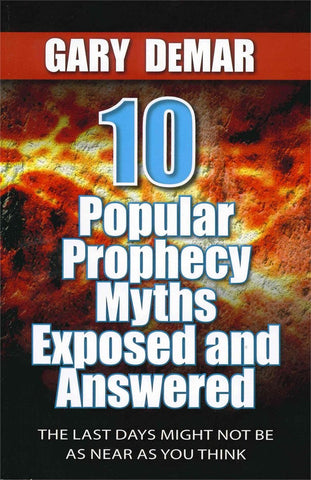Gary answers the perennial charge of “replacement theology,” a phrase that is designed to end debate by those who teach that the church and Israel are distinct and separate.
Israel’s spiritual destiny is the same as it is for non-Israelites: Repent and believe in Jesus! No one said anything about a delay in the promises that had been made to Israel centuries ago. In fact, Peter clearly informed them that the promises were for them and their children (Acts 2:38). There is no mention of the land, a rebuilt temple, the reinstitution of animal sacrifices, or anything else related to the shadows of the Old Covenant. In fact, “for all who were owners of land or houses sold them” (4:34). They possessed something better, the forgiveness of their sins (2:38). Jesus is “the mediator of a better covenant, which has been enacted on better promises” (Heb. 8:6). What would they rather have: land, stone, the cutting of their flesh, and yearly bloody sacrifices, or forgiveness of sins, the power of the Holy Spirit (Acts 1:8), and Jesus who intercedes as a mediator for them daily? The answer is obvious as the book of Hebrews makes clear in multiple chapters.
The charge of “Replacement theology” obscures the obvious. The charge is a tactical red herring to get people’s attention away from what the New Testament shows about the relationship between the promises of the Old Covenant and their fulfillment in the New Covenant with Israel and how Gentiles are grafted in to an Israelite assembly (ekklēsia) of believers. How in any way is this even close to a replacement? It’s not. The replacement theology epithet is dispensationalism’s trump card in any debate over eschatology because it implies anti-semitism. Once the charge is made, all rational discourse ceases.
If you are losing a debate, the simplest and quickest way to recover is to call someone a hater, a racist, an anti-Semite, or an advocate of “Replacement Theology,” which, of course, is the same as being a hater, racist, and anti-Semite. A quick read of the New Testament will show that no one makes the charge of “Replacement Theology,” and no one holds out for the reinstitution of the shadows of the Old Covenant.

Ten Popular Prophecy Myths Exposed and Answered
Since the reestablishment of Israel in 1948, prophetic speculation by Christians has been on the rise. Of course, there is a long history of date setting, but the past century has seen an exponential increase in the number of books proclaiming that the end is near. It’s time that the “Boy who cried wolf” syndrome be dealt with in a biblical way.
Buy NowGary answers the perennial charge of “replacement theology,” a phrase that is designed to end debate by those who teach that the church and Israel are distinct and separate. Israel was the original “church in the wilderness” and the modern Christian church—made of believers from ALL the nations—is what the Bible was predicting throughout the Old Testament and proclaiming in the New Testament.

